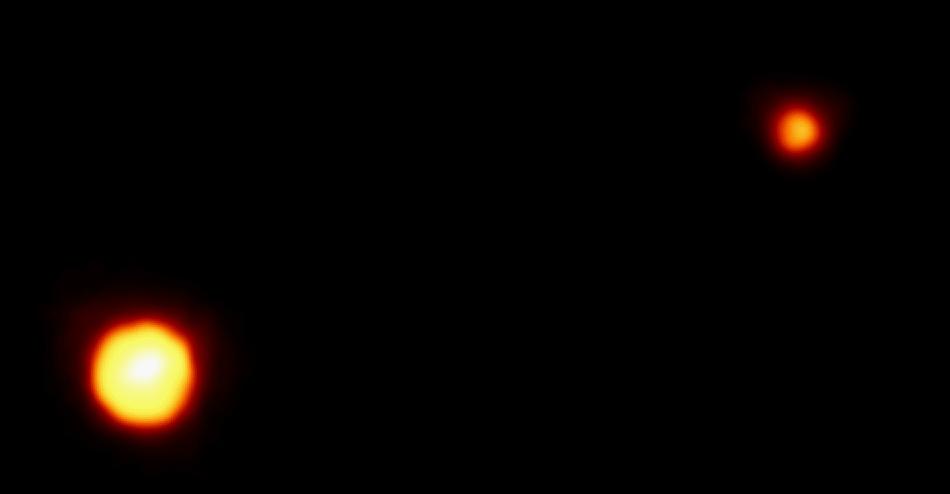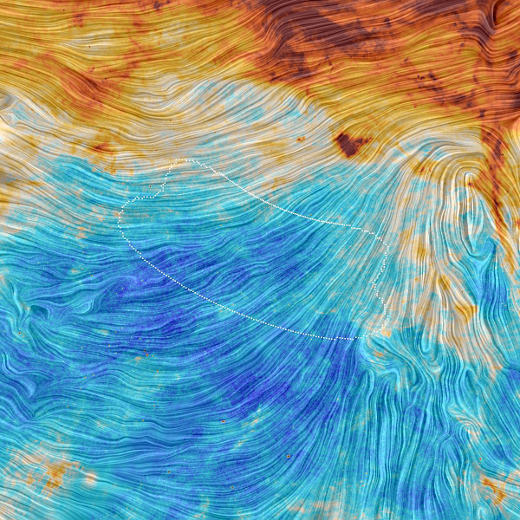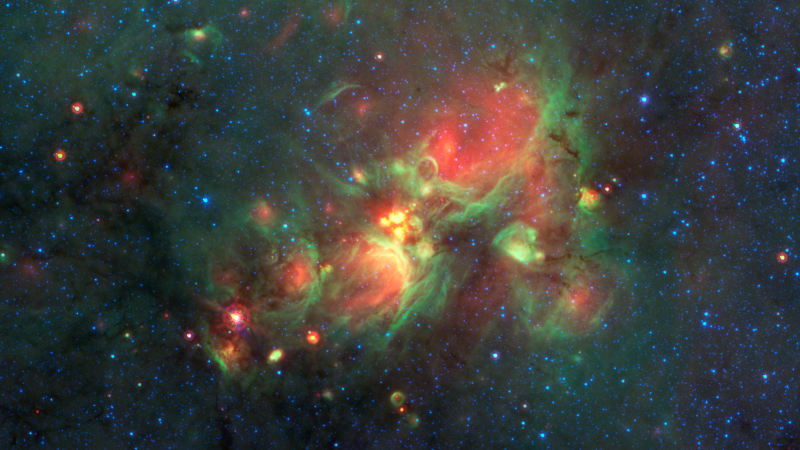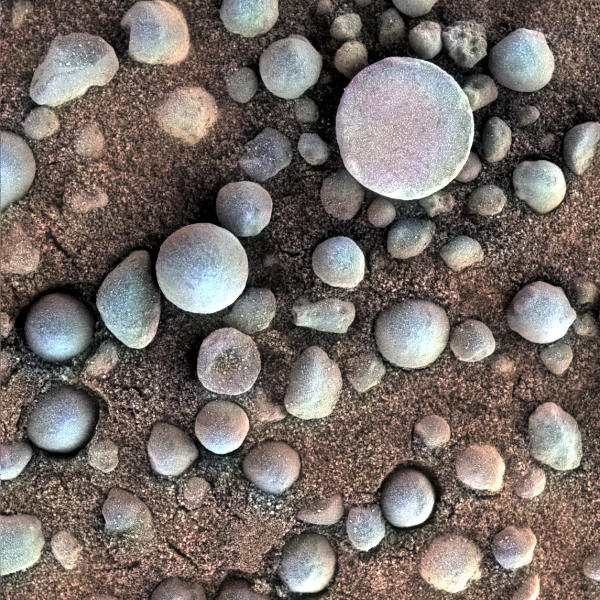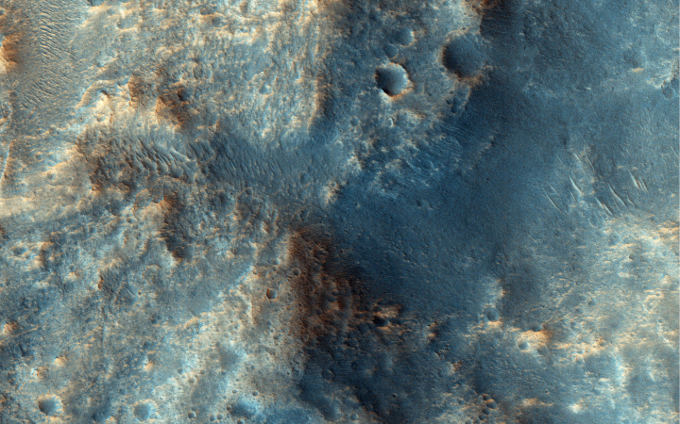
The HiRISE took this picture of the Ares Vallis region which sits on a Martian plateau. HiRISE camera on the Mars Reconnaissance Orbiter is operated by the University of Arizona and took this picture on January 1, 2015. The huge outflow channel, Ares Vallis is also close to where the Pathfinder/Sojourner Mars mission landed in 1997.
